Hotel Pandemic 2.0: Changing of the guard. Hotels are going to close and they won’t reopen–ever!

Jack Welch famously said: “If you don’t have a competitive advantage, don’t compete.” Someone else said of the hotel industry “we aren’t oversupplied, we are under-demolished.” Given the level of dislocation surrounding the current global economic crisis, it’s time to consider alternative uses as many hotels can’t compete, and the economics of remaining open as transient lodging will not be favorable.
 |
We generally think of obsolescence as the deterioration of a building and its inability to meet even basic brand standards (small rooms and bathrooms, retrofitting a two-pipe to a four-pipe system, a 30-year old technology platform, low ceilings or a dated exterior that painting/remodeling can’t fix). Today, however, we have two emerging concerns to add to the definition: locational and generational obsolescence.
Locational obsolescence occurs when demand generators move. What was once the “A” location 25 years ago is now a “C” location today as the sources of old demand move away and new demand moves to new locations with newer spaces and amenities. This is more a suburban issue than a top-tier market issue, because in most suburban locations, there is inexpensive land near the old city center and a favorable development climate encouraging movement literally down the road. The new buildings are modern and house relevant space for offices, retail, restaurants, entertainment, residential and hotels. It’s where people want to be now.
Generational obsolescence occurs when the “new and now” customer doesn’t need or value the services and amenities offered in previous generations’ hotel boxes (bellmen, doormen, valet parking or for that matter, a front-desk agent). For example, in high-tech office parks, the demand base doesn’t “need” meeting space since they have their own in their office buildings; rather, they are using the hotel in the office park as a convenient rooming house. New and now customers are offended by the $30 pricing of breakfast in the traditional setting and prefer quick service at neighborhood coffee houses. We also need to face the fact that most hotel dining is either unexciting or pretentious, not to mention seriously overpriced. Today, everyone’s a “foodie” and prefers going to the new, hip, cool and creative restaurants, usually in the new “A” location. The result is the new, focused-service hotel in the new “A” location that meets all the “new and now” needs at a lower pricing model.
There are particularly interesting alternative uses and conversion opportunities available to owners that can be profitable.
- Senior/assisted living
- Publicly financed affordable housing
- Homeless shelters
- Highest and best use (demolish and redevelop)
- Budget motel (cut costs to the bone, shutter everything that’s not rooms)
- Youth hostels
- Public storage or storage of specific industries, like toxic waste
- Data warehouse and storage
- WeWork-style offices with a rooming option (a live-work space)
- Student housing
- ICE housing
- Micro-apartments
- Training centers
- Airline crew housing
Senior housing and assisted living can make sense since many of these hotels have kitchens and ballrooms to serve as dining and congregating space, as well as amenities seniors are looking for like fitness centers, pools, and spas. Hotels can typically be secured with a single point of entry and exit, providing safety and security.
Millennials complain about housing affordability (many last lived in a dorm room or their parents’ basements) and micro-apartments would be an attractive option. The publicly financed option (buy it and convert in instead of building from ground up) would help solve homelessness in many places and is far cheaper than building a new facility.
Admittedly, conversion of hotels to alternative uses is challenging, and there is no one-size-fits-all model. It requires out-of-the-box thinking and the admission that failure is probable and the willingness to recognize your losses and make change happen sooner than later. Unfortunately, in this cycle, you will have plenty of companies looking for solutions.
Thomas Morone is the Managing Director of the West Coast office of CHMWarnick and is responsible for consulting and asset management. Tom is well-known in the industry for his 40-plus years of industry expertise, including general hospitality consulting, corporate acquisition/disposition, management/franchise selection and contract negotiation, hotel and resort brokerage, strategic planning and market positioning, hotel operations, and litigation support.

